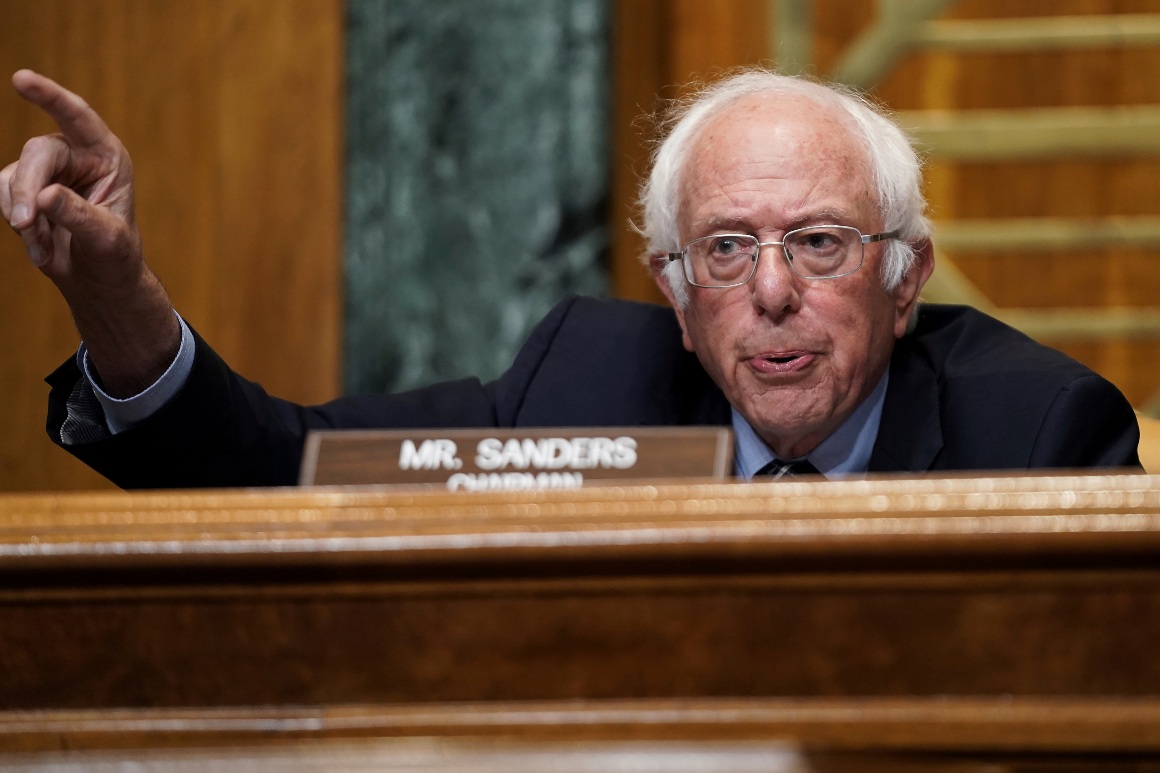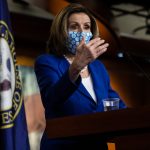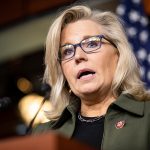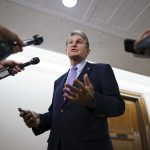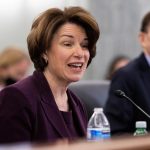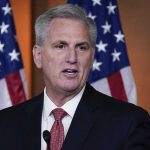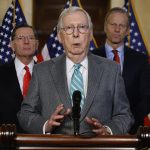Influential progressive lawmakers are teeing off on the Senate’s bipartisan infrastructure negotiations, threatening defections that could derail the prospects for a deal on roads and bridges given Democrats’ thin majorities.
Senate Budget Chair Bernie Sanders (I-Vt.) announced his opposition on Monday, and other liberals are threatening to join him. Sens. Jeff Merkley (D-Ore.) and Ed Markey (D-Mass.) gave a press conference Tuesday vowing to oppose any infrastructure accord that lacks major policies to tackle climate change. Rep. Pramila Jayapal, who leads the Congressional Progressive Caucus, says her members will oppose unless Democrats also commit to a broader, separate bill.
An even bigger number of left-leaning members are criticizing an emerging bipartisan Senate agreement to spend nearly $1 trillion, $579 billion of it new spending, on physical infrastructure. Senate Banking Committee Chair Sherrod Brown (D-Ohio), who oversees transit policy on transportation bills, said he looks at anything with GOP support “with skepticism that Mitch McConnell’s earned.”
“McConnell has repeatedly said he wants Biden to fail. And you know the Republican conference doesn’t do anything that McConnell doesn’t bless,” Brown said in an interview on Tuesday. “There’s no genuineness about paying for it … we’re not going to do a gas tax, and they’re not going to ask people that got tax cuts four years ago to ante up anything.”
Five Senate Democrats, including moderates who have balked at a party-line infrastructure bill, are negotiating with an equal number of Republicans on a package of spending on roads and bridges while trying to sell it to their respective sides of the aisle. But the burgeoning resistance among progressives means that President Joe Biden’s signature domestic priority could wither on the vine while bipartisan talks stretch on — since every Democratic vote that jumps ship requires his party to lock in a corresponding Republican.
Markey and Merkley both signaled opposition to continuing to negotiate with Republicans and said Congress needs to work out a climate and infrastructure package by early August. They said their strategy to get an “ironclad” commitment to a climate bill that can become law is supported by Senate Majority Leader Chuck Schumer.
“It’s time for us to go our own way,” Markey said of negotiations with Republicans. “We need to move forward with 50 Democratic votes.”
Likewise, Sen. Richard Blumenthal (D-Conn.) said he would only consider the bipartisan proposal with a commitment to immediately doing a more expansive bill. He called the current bipartisan plan "pathetically paltry."
Brown said Democrats are quietly preparing a unilateral approach because Republicans “are not genuine on this, on anything.” Asked if he’s dubious that a bipartisan agreement can be enacted, he replied: “Ya think?”
White House counselor Steve Ricchetti told House Democrats that the White House would give the Senate group perhaps 10 days to work out a deal, according to an attendee at a caucus meeting on Tuesday morning. Yet on the other side of the Capitol, an even bigger number of Democrats are skeptical or downright hostile to what the Senate negotiators are trying to pull off.
Ricchetti also told House Democrats in that closed-door meeting that the White House would not hold back entirely while waiting for a potential GOP deal.
"The White House made clear to us in our conversations today that we are prepared to take a two-track approach," House Democratic Caucus Chair Hakeem Jeffries (D-N.Y.) told reporters afterwards. "If the obstructionists prevail," Jeffries said, Democrats would move full-speed toward a party-line bill.
Democrats are leery that talks with Republicans will derail the rest of Biden’s multitrillion-dollar agenda focusing on enhancing public education, paid leave policies and fighting global warming. Senate Majority Whip Dick Durbin said that unrest will prompt a pivotal discussion within the Democratic caucus.
“Many members of the Democratic caucus want to have a clear understanding of what comes next as to whether or not a bipartisan bill will come with a total, 50 votes of Democratic support for reconciliation,” the Illinois Democrat said in an interview.
Progressives would “rather do one large bill" as opposed to splitting up the legislation into pieces focused on physical and social infrastructure, he added. "But practically we are a razor-thin majority thanks to the vice president. So, we have to deal with reality.”
Some Democrats are holding their fire on the bipartisan framework, asking that Sens. Kyrsten Sinema (D-Ariz.) and Joe Manchin (D-W.Va.) offer an ironclad promise to support the rest of Biden’s agenda in exchange for Democratic support for the aisle-crossing agreement.
Sen. Mazie Hirono (D-Hawaii) said the group’s work “falls short” and “doesn’t have anything on climate” but that she still could support it if the bipartisan bill is part of a much larger plan to address social policy such as paid leave.
"If it’s just this infrastructure bill by itself, it would be mighty hard for me to support it," Hirono said.
Asked about the odds Democrats would ultimately pursue a party-line infrastructure bill, Rep. Dan Kildee said "most would prefer a negotiated deal" with GOP senators but that "most everybody’s resigned to" going it alone.
The group has yet to release details of its plan beyond the top line spending number. It hopes to pay for the new spending with unused coronavirus aid, user fees and increased IRS enforcement; a bid to gradually increase the gas tax has faltered in recent days. Members of the group say they expect to go public with more details sometime this week.
